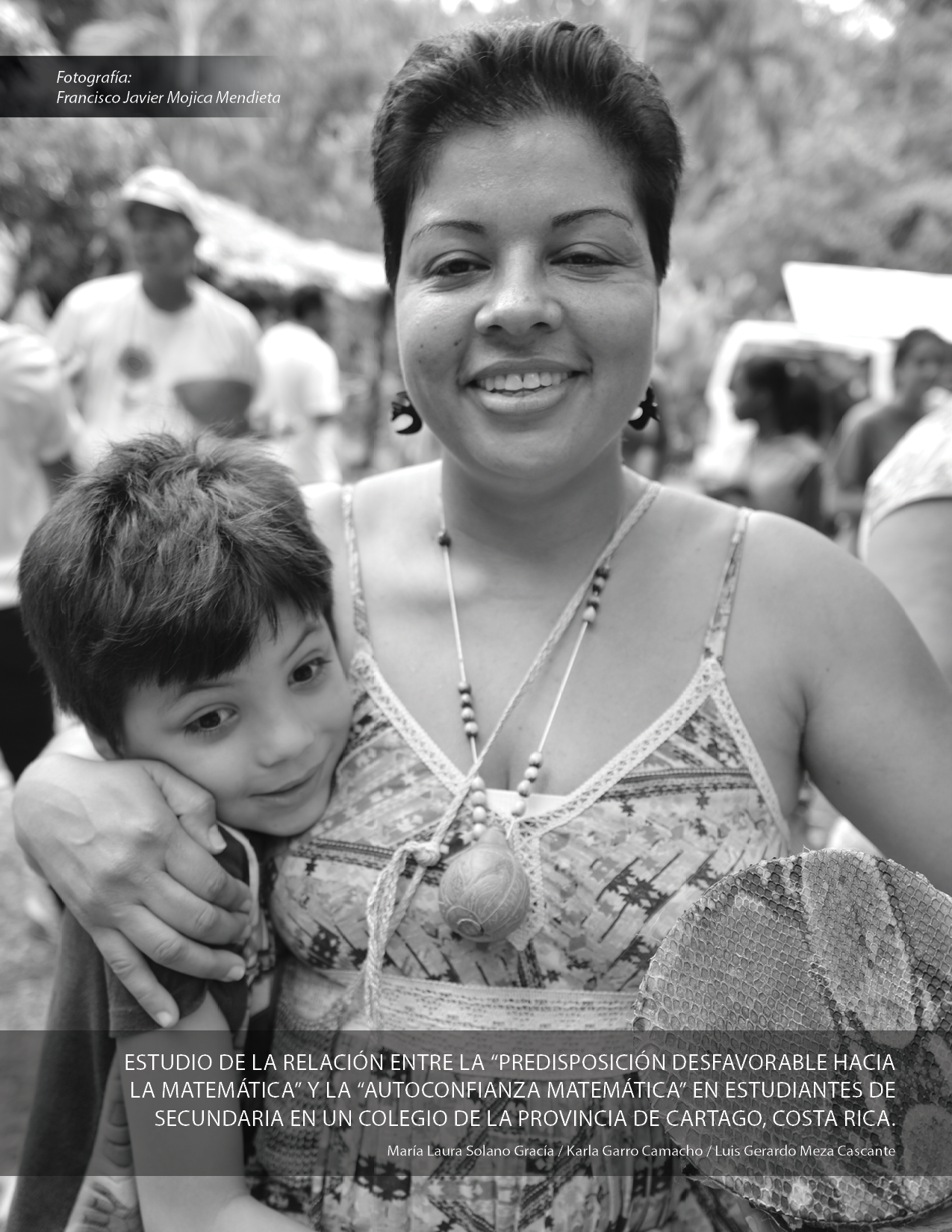Study of the relationship between “unfavorable predisposition towards mathematics” and “mathematical self-confidence” in secondary school students in a school in the province of Cartago.
Main Article Content
Abstract
The results of a study on secondary education students in a school in the province of Cartago, Costa Rica, whose name is reserved by confidentiality agreement, carried out in the first semester of 2020 with a sample of 341 students from a population of 371 students are presented.
8.9% of the students show a high level of “unfavorable predisposition towards mathematics” The objective of the research was to study the relationship between the variables “unfavorable predisposition towards mathematics” and “mathematical self-confidence”, analyzing the existence of differences according to sex and educational level. The “Predisposition towards Mathematics Scale (EPMAT)” by Cerda, Ortega, Casas, Del Rey, and Pérez (2016) and the “Mathematical Self-Confidence Scale” by Fennema-Sherman (1976) were used.
The results indicate that approximately 8 and that approximately 87.1% show a low level of “mathematical self-confidence”. It was found that women have lower values, on average of “unfavorable predisposition towards mathematics” and higher values of mathematical self-confidence.
No differences were found in the student body by educational level in any of the two variables. Finally, the research determined the existence of an inverse, strong and significant relationship between the variables.
Article Details

This work is licensed under a Creative Commons Attribution-NonCommercial-NoDerivatives 4.0 International License.

This work is licensed under a Creative Commons Attribution-NonCommercial-NoDerivs 3.0 Unported License.

